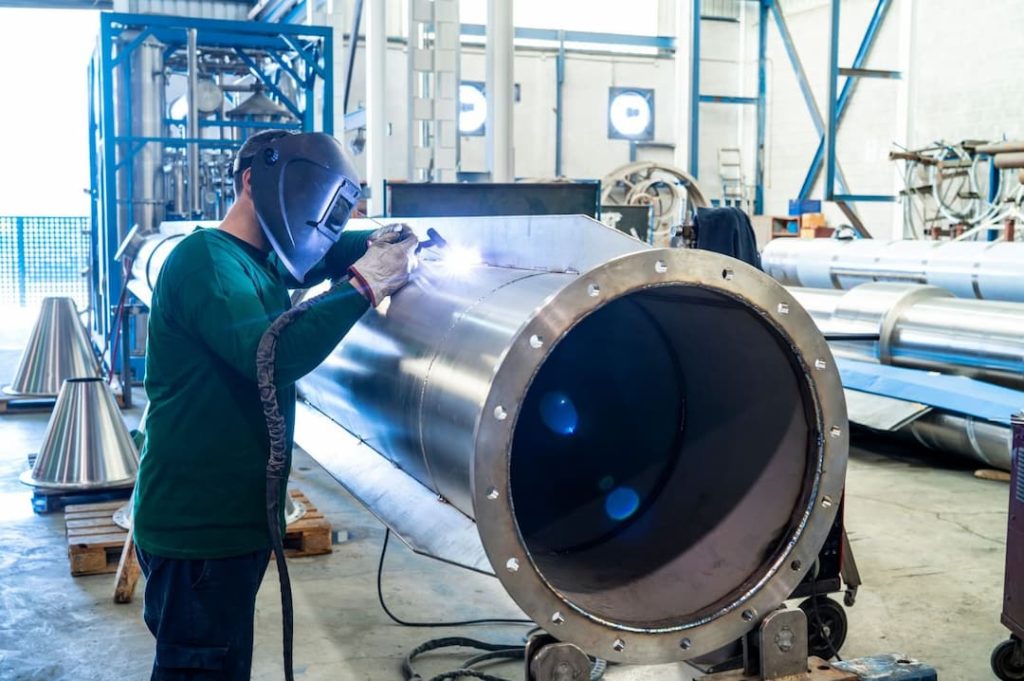Are you an experienced pipe welder looking to make more money? If you are, you're not alone! With the increased demand for welders in industrial and commercial applications, skilled workers in this field see tremendous salary boosts.
Table of Contents
While exact earnings vary depending on experience and other factors, there's no doubt that those working in welding can command excellent wages - so if becoming a pipe welder interests you, you may be the perfect time to pursue it! In this blog post, we'll talk about how much does a pipe welder make and other important things you need to know if you plan to pursue this career!
Key Takeaways
- Many factors, such as location, affect the average pipe welder's salary.
- In some states, a pipe welder is paid more than others
- A pipe welding job can be as easy as it sounds and it follows traditional methods.
- Few industries, like the food industry, where pipes are the concern because of safety purposes, are in need of good pipe welders
- Thus, the demand for skilled pipe welders is rising at that rate.
What is Pipe Welding?
Pipe welding can be defined as a specialized form that involves joining pipes, tubes, and related fittings. It can be a traditional method, and I recommend it if you want to earn a high salary. The process requires specialized machinery and equipment to join pipes welded in place. According to my research, it can be done with any welding method that is available to you, such as:
- gas tungsten arc (GTAW)
- shielded metal arc (SMAW), which is the most used one
- gas metal arc (GMAW), that gives you the best safety terms
- flux cored arc (FCAW)
- submerged arc welding
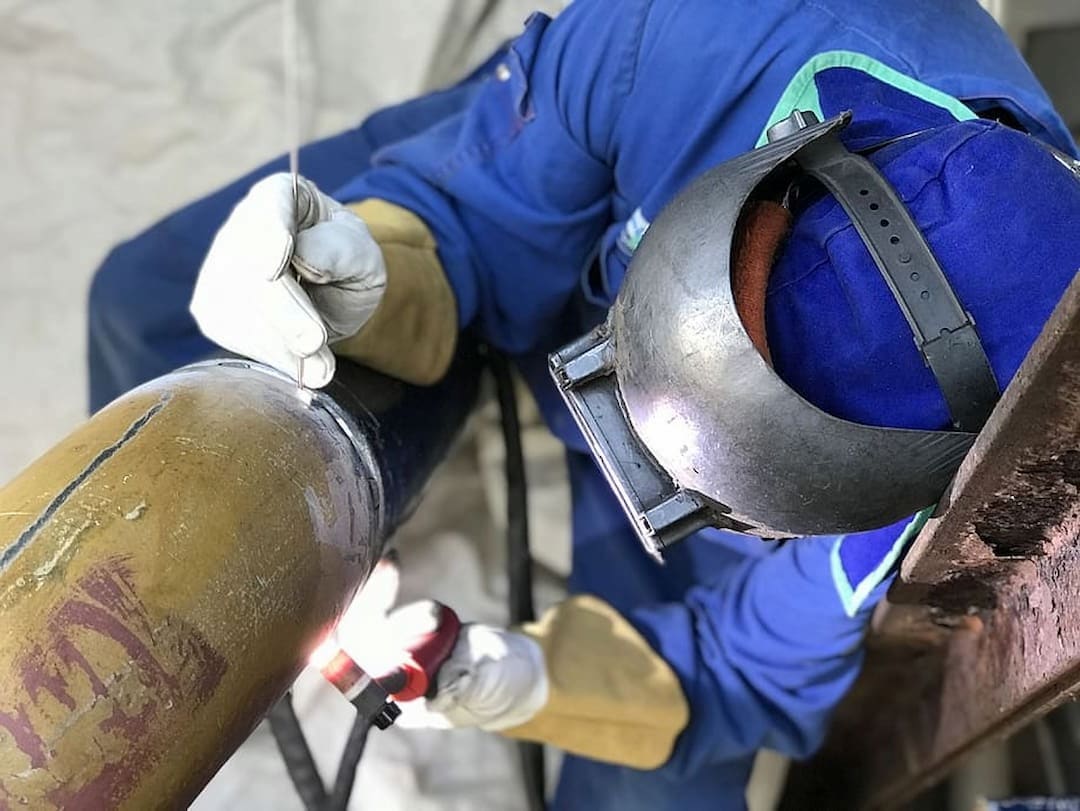
Pipe welders must have a strong understanding of welding processes and the ability to work with different materials, such as mild steel, stainless steel, aluminum, and other alloys that can be welded.
To ensure that pipe welds are safe and secure, it is important to have the proper welding procedures in place. In comparison, rope access welders earn about the same but need a lot more safety features due to their job specifics - hanging on ropes while welding.
The pipe weld joints should also be tested to ensure they are free of defects or gaps. A pipe welder must also use personal protective equipment such as safety glasses and gloves when welding.
Salary Ranges for Pipe Welders
The salary range for pipe welders varies depending on the experience and expertise of the individual, and in my opinion, certifications also come in handy.
Entry-level pipe welders may make an average of $13 to $16 per hour, while experienced professionals can expect to make between $17 and $30 per hour. Highly experienced and specialized pipe welders may earn up to $50 or more per hour, depending on the project's complexity. Almost on a par with rig welders' earnings.
The type of industry in which the pipe welder is employed also plays a factor in determining the median salary. For example, pipe welders in the oil and gas industry typically earn higher salaries than those in other industries.
As for yearly salaries, according to the Bureau of Labor Statistics, pipe welder earns an average of $45,000 annually. Again, this figure can vary depending on experience and certifications.
What State Pays Pipe Welders The Most?
Pipe welders across the United States can make different salaries due to location, experience, and welding certification.
States that are home to major manufacturing hubs or companies in the petroleum industry tend to pay higher welding salaries for pipe welder jobs.
Some of the highest-paying states for welders include Alaska, Texas, Louisiana, Montana, and Wyoming. In these states, the average yearly salary for pipe welders can range from $47,000 to $60,000.
How Much Do Pipeline Welders Make in Various Industries?
Highest paid pipeline welders in the oil and gas industry may earn higher wages than those in other industries. A pipeline welder in the oil and gas extraction sector reported a median annual average salary of $63,000 as of April 2023.
Welders working in the oil and gas pipeline construction industry reported a median average annual salary of $50,050. A pipeline welder in other industries, such as shipbuilding and heavy construction, also earns competitive wages. Not as much as underwater welding salaries but still good.
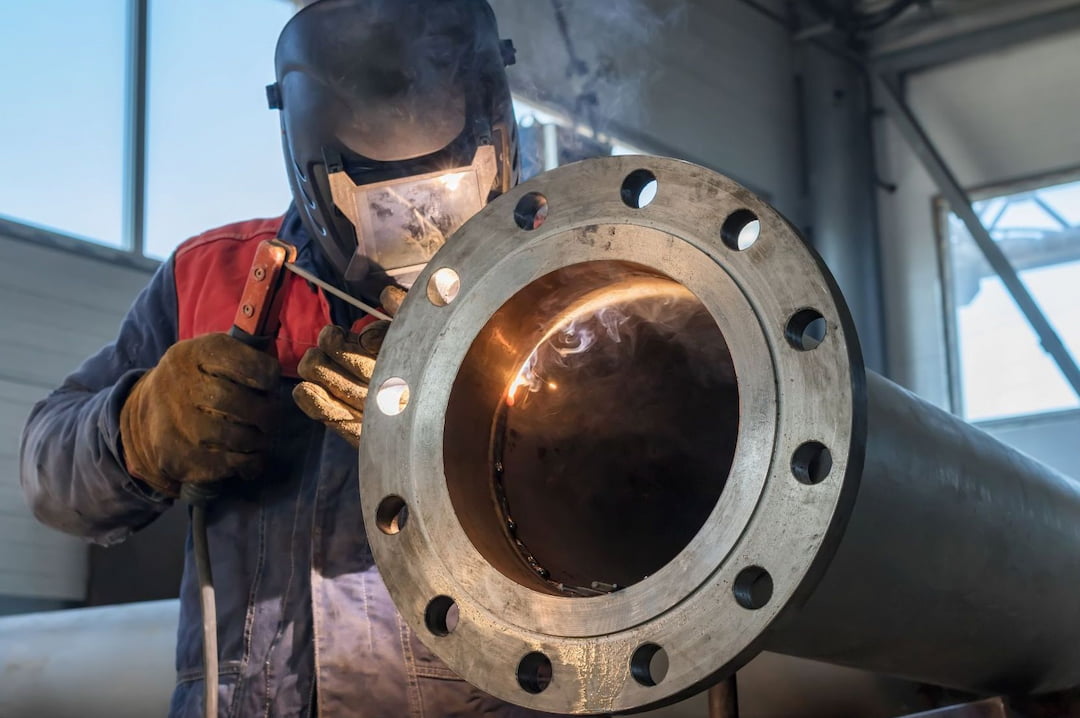
What is the highest-paid pipeline welder?
The highest-paid pipeline welder is typically an experienced and highly skilled worker who has mastered the art of pipeline welding. To obtain this position, welders must have extensive training in welding codes and regulations and certification from industry trade organizations like the American Welding Society (AWS).
The average pipe welder salary can range from $60,000 to $90,000 a year, although some welders can make even more than this, depending on the complexity of their projects. Those with an in-depth knowledge of pipeline maintenance and welding fabrication may earn even higher wages.
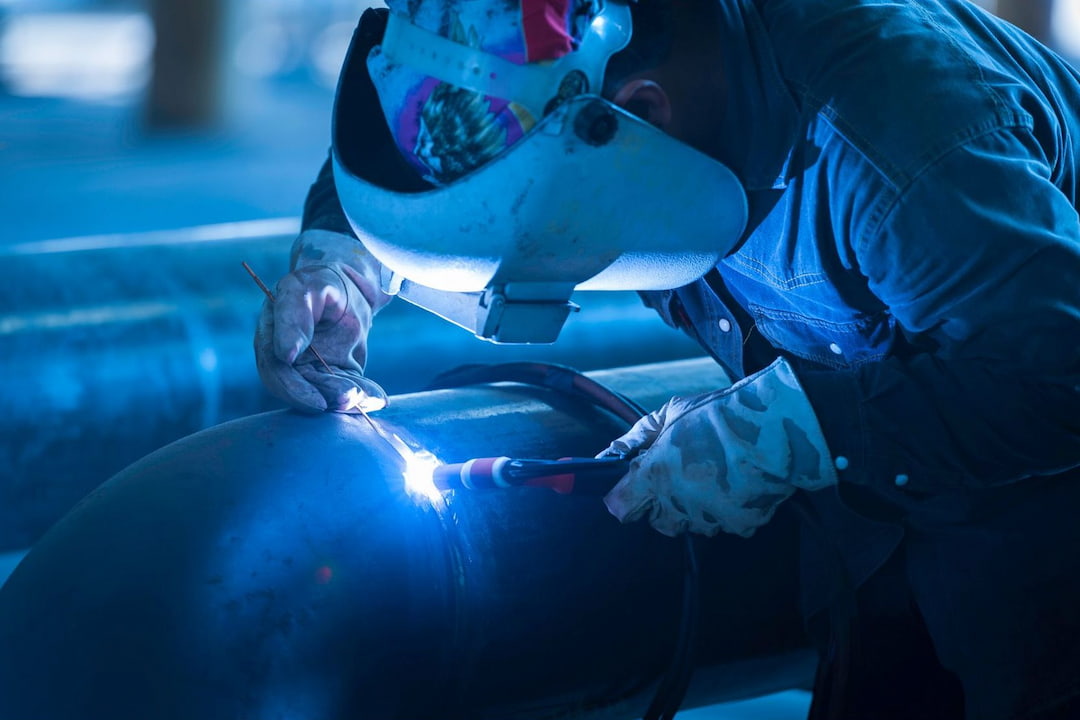
Does a Pipeline Welder Make More Money?
Pipe welders earn more than others due to their specialized skill set or experience. The average pipe welder salary varies depending on experience and location, with experienced welders making up to $34 per hour in some locations.
There are also additional average pay increases based on certifications and other qualifications. Pipe welding is an in-demand skill, and welders can find work in many different industries, from construction to manufacturing. With the right experience and qualifications, pipe welders have the potential to earn a generous average salary, more than structural welders earn within the same industry.
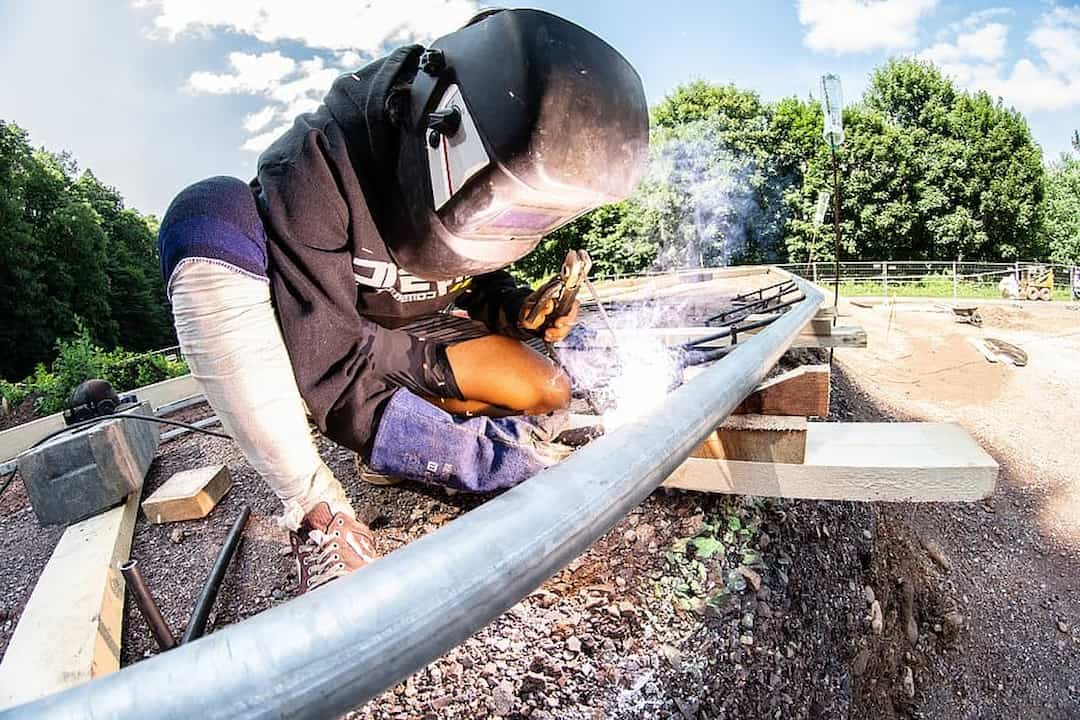
What does a Pipe Welder do?
Pipe welders are responsible for joining pipes together, typically in various industries such as construction, shipbuilding, and manufacturing. They use various welding processes, such as arc and gas welding, that can be used to connect the pipes. An average pipe welder must also be knowledgeable about different types of metals and their properties to create effective connections.
Pipe welders need to be able to interpret blueprints and diagrams to understand the dimensions and layout of the pipes. Before beginning work, they must also prepare the materials for welding, including preheating, cleaning, and grinding them.
FAQs Related to How Much Does a Pipe Welder Make
What factors affect a pipe welder’s salary?
Several factors affect a pipe welder's average salary, including experience, related job titles and industry, geographic location, certifications, and place of employment. Experience is often the biggest factor, as more experienced welders typically command higher salaries.
The type of job and industry can also play an important role in a pipe welder salary. For example, those working in nuclear or aerospace industries will likely make more than those in other fields. Geographic location is also a factor, as certain states or regions may offer higher salaries than others.

Which welding is most in demand?
The most in-demand welding processes currently are Shielded Metal Arc Welding (SMAW), Gas Metal Arc Welding (GMAW), Flux Cored Arc Welding (FCAW), and Submerged Arc Welding (SAW). All these welding techniques require a high level of skill, knowledge, and experience to use correctly, so welders must be properly trained and certified to work safely and effectively. These welding processes can join various metals, including steel, stainless steel, aluminum, copper, and many alloys.
How much does a pipe welder earn in the USA?
The average annual average salary for pipe welders in the United States is around $45,660 annually. This figure can vary greatly depending on location, experience, and skills as discussed many times by me above in the article. This figure is also higher than many other welding professions in the United States.
